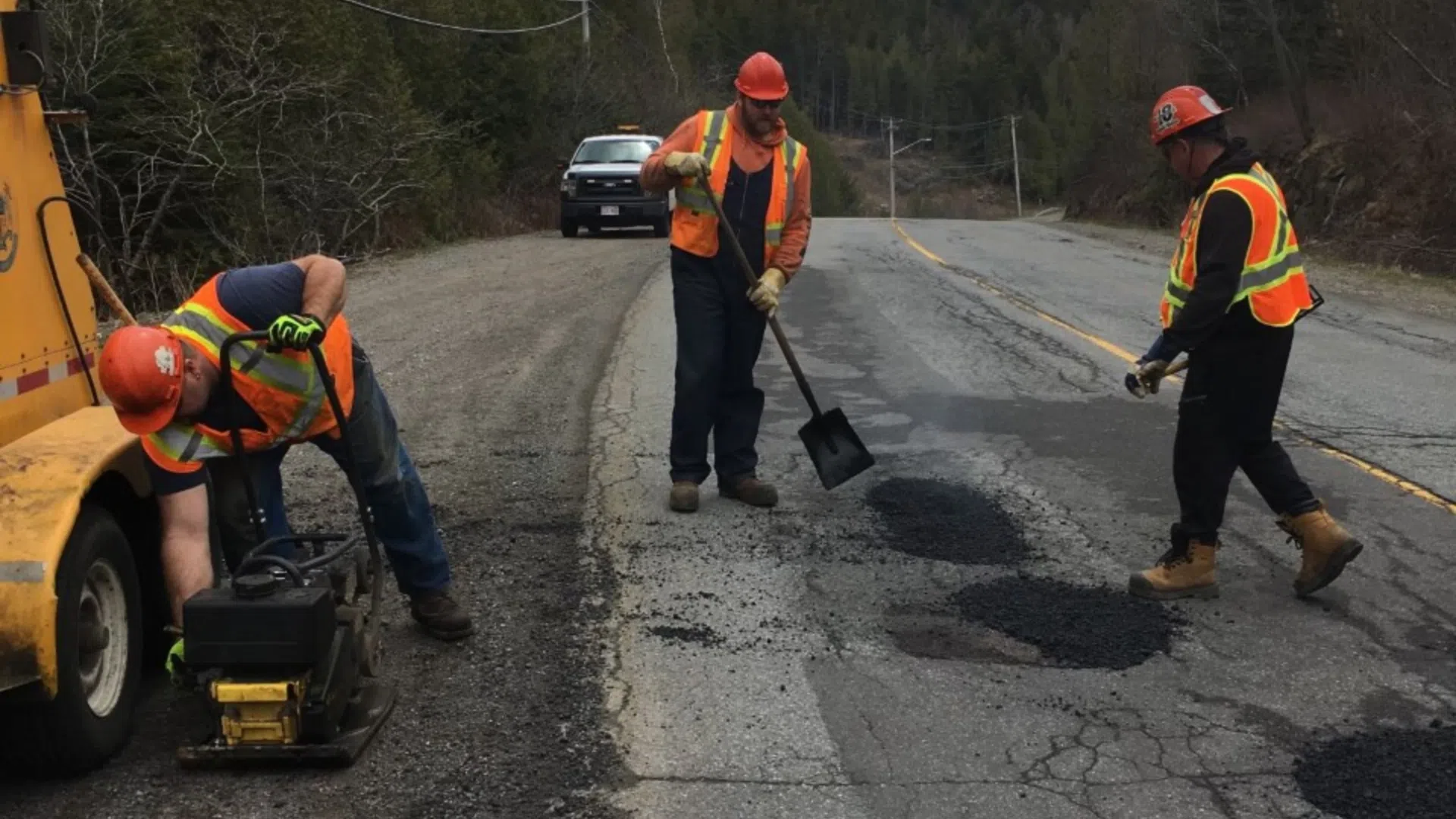
Crews with the City of Saint John work to repair potholes. (Image: City of Saint John/Submitted)
Saint John city crews will begin hitting the streets in force this week for their annual pothole repair blitz.
But many drivers have noticed the potholes this spring are not as bad as in previous years.
Amy Dobson, who is the city’s operation manager for surface maintenance, agrees.
Dobson said the freeze-thaw cycles we saw over the winter months worked in their favour.
“Sometimes that pothole blitz could take us six to nine weeks to do but we’re in good shape to have that done probably in four or five weeks,” said Dobson.
For the past few weeks, crews have been repairing potholes on higher priority streets using their asphalt recyclers.
The two machines reheat new or used asphalt, creating a hot mix to repair potholes and for surface patching.
“Any potholes that we’ve had where there’s damage to property or could create a traffic hazard, those are the ones they’ve been focusing on the past few weeks,” said Dobson.
But with hot asphalt plants set to open for the season this week, crews will turn their attention to all priority levels of streets throughout the city.
Dobson said some defects cannot be fixed right now, such as delamination, where road surface layers are worn away.
“Certain surface defects actually require a certain material that’s called sand seal. It’s a finer, granular material. We need hot, 15°C pavement temperatures,” she said.
Work orders for pothole repairs can be generated in one of two ways: through reports from road users and through logs generated by city crews.
Drivers can report potholes to the city by calling customer service at (506) 658-4455, emailing service@saintjohn.ca or completing a service request form on the city’s website.
“If they’re calling in to report a pothole, what we really need is a civic address or a landmark,” said Dobson. “That really helps us get out there and find the right one.”
Dobson is asking people to be patient over the coming weeks as their crews work to repair the potholes.
“I know that people will call in and say ‘this is the pothole and they drove by it’ or ‘they fixed something on the road but not that one,'” she said.
“They’re going to be going up and down every street and repair what they can as required.”







